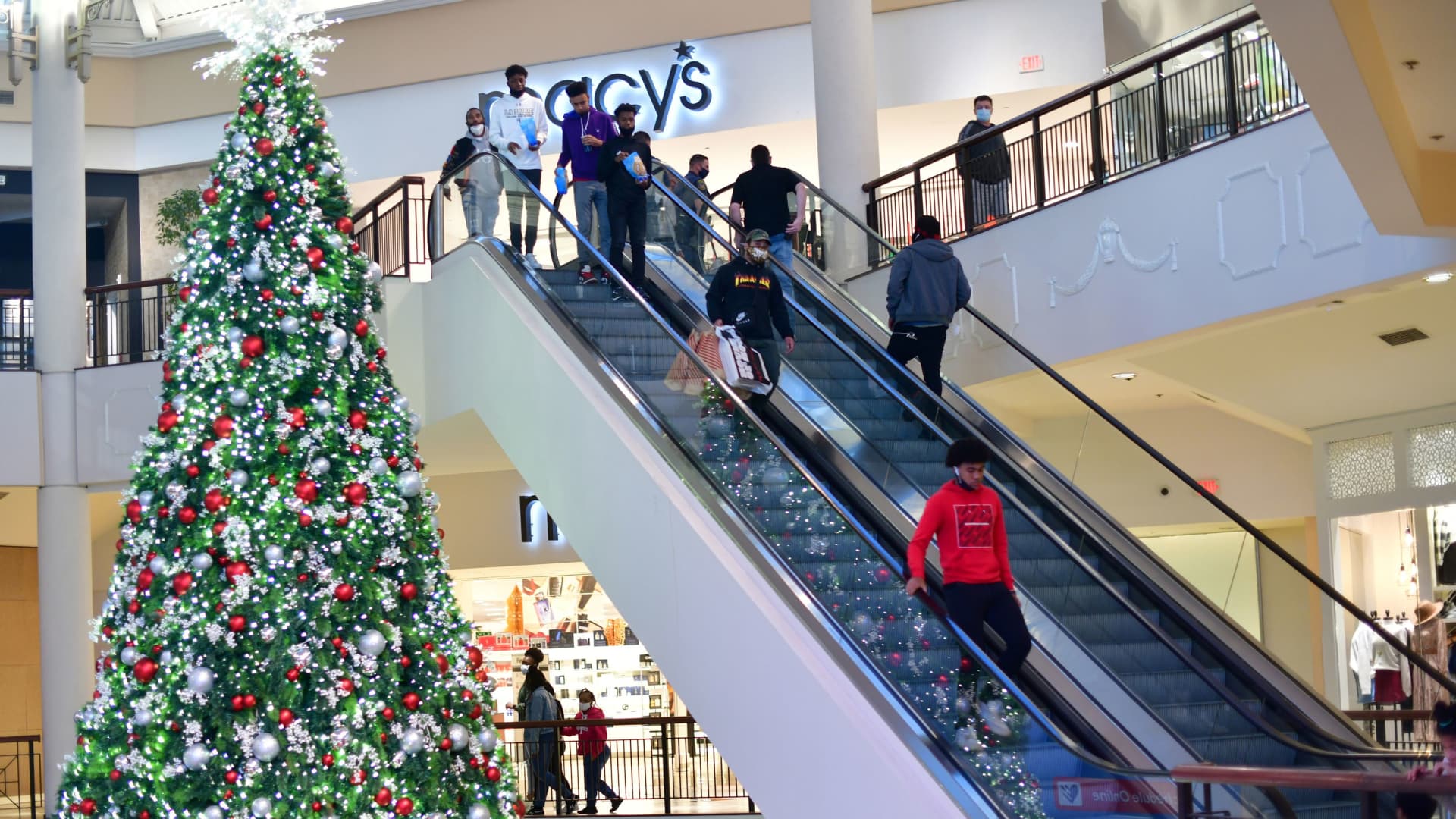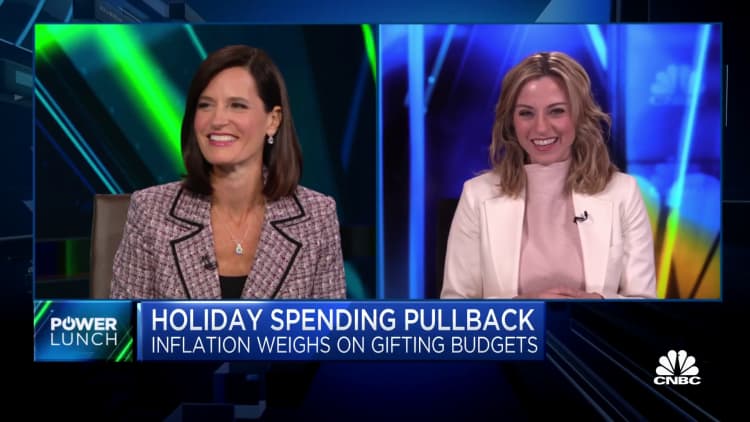

Inflation is weighing heavily on the holidays this year.
Roughly half of shoppers will buy fewer things due to higher prices, and more than one-third said they will rely on coupons to cut down on the cost, according to a recent survey of more than 1,000 adults by RetailMeNot.
Though the study found many consumers are also eager to get an early start on seasonal shopping, that surge is largely driven by concerns about affordability and money-saving strategies, other reports show.
“Inflation is, by far, the biggest issue for households this year,” said Tim Quinlan, senior economist at Wells Fargo and author of its 2022 holiday sales report.
More from Personal Finance:
Free returns may soon be a thing of the past
Affluent shoppers embrace secondhand shopping
These steps can help you tackle stressful credit card debt
Household finances have taken a hit with a lower savings rate and declining real wages, which could slow holiday sales, Quinlan said.
“The bottom line is, with inflation remaining a headache, dollars aren’t stretching as far, and most consumers will still be looking for bargains,” Quinlan said.
A separate report by BlackFriday.com also found that 70% of shoppers will be taking inflation into consideration when shopping this holiday season, and even more will be on the lookout for deals.
People are trying to economize and make the most of what they have.
Cecilia Seiden
vice president of TransUnion’s retail business
Roughly 25% of consumers said they would opt for cheaper versions or more practical gifts, such as gas cards, according to TransUnion’s holiday shopping survey.
“People are trying to economize and make the most of what they have,” said Cecilia Seiden, vice president of TransUnion’s retail business.
Still, households will shell out $1,455, on average, on holiday gifts, in line with last year, a separate retail report by Deloitte found.
How to avoid going into debt this holiday
Shoppers at the Willow Grove Park Mall in Willow Grove, Pennsylvania, on Nov. 14, 2020.
Mark Makela | Reuters
“Remember to not put yourself in debt over holiday shopping,” cautioned Natalia Brown, chief client operations officer at National Debt Relief. “Debt prevents people from reaching their financial goals — like building an emergency fund, buying a home and saving for retirement.”
Holiday spending could come at a higher cost if it means tacking on additional credit card debt just as the Federal Reserve raises interest rates to slow inflation, Quinlan added.
Annual percentage rates are currently near 19%, on average, an all-time high, according to Ted Rossman, a senior industry analyst at CreditCards.com.
That will leave consumers worse off heading into 2023, Quinlan explained.
“In many ways we view this year’s holiday shopping season as the last hurrah,” he said.
